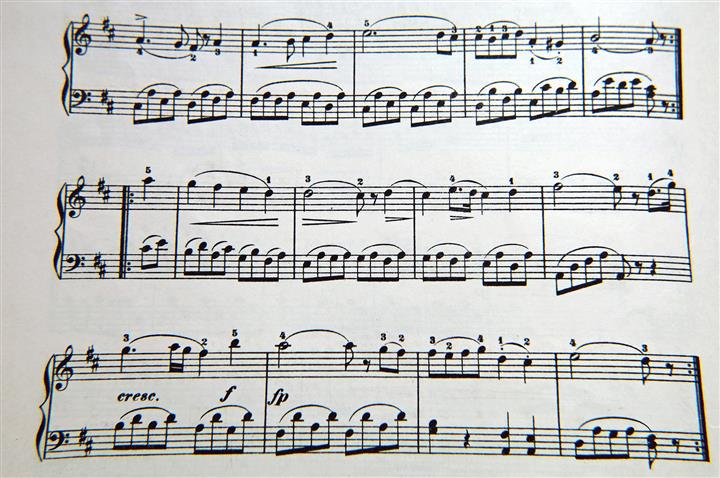The Free Dictionary Blog > English Grammar and Spelling > What rhymes with orange? And 8 other burning language questions
What rhymes with orange? And 8 other burning language questions
What rhymes with orange? What is the plural of moose? What is the longest word in the world? All of your questions about words, answered by The Free Dictionary.
1. What is the plural of moose?


n. pl. moose
The plural for moose is just that: moose. It defies the conventional plural "S" ending ("mooses") and does not become "meese," as one might expect from the model of goose/geese. This may be due to the fact that "goose" can be traced back to Greek and Sanskrit, whereas "moose" has a Native American origin.
2. What rhymes with orange?

The list of words that rhyme with orange is very short.
There is one word that you have probably never heard before that rhymes with orange: "sporange," a rarely-used, shortened form of "sporangium," which is a single-celled or many-celled structure in which spores are produced, especially in fungi, algae, mosses (not mooses), and ferns.
Good luck making a poem out of that!
3. What is the longest word in the world?

We're glad you asked! Let's kill two birds with one stone and also answer our next question:
4. What is the longest word in the English language?
There are several "longest word" candidates, all of which are hotly debated.
"Methionylthreonylthreonylglutaminylarginyl...isoleucine," the chemical name for the protein titin, is a whopping 189,819 letters and is thus regarded by some people as the world champion of word length. However, others disqualify the term because it has never been published in a major dictionary (probably because they'd run out of ink if they did). The next longest word, at 1,909 letters, is also a technical term and does not appear in a dictionary: "Methionylglutaminylarginyltyrosylglutamyl...serine."
5. What is the longest word in the dictionary?

Significantly shorter but published in dictionaries is the 45-letter-long "pneumonoultramicroscopicsilicovolcanoconiosis," a disease caused by the prolonged inhalation of fine siliceous dust. (Also spelled pneumonoultramicroscopicsilicovolcanokoniosis).
Other long words
Sometimes listed as the longest non-technical word is "floccinaucinihilipilification" (29 letters), which is the categorizing of something as valueless trivia.
The practice of using very long words is fittingly called sesquipedalianism (17 letters).
The word for the fear of long words is called, unfortunately for its supposed sufferers, "Hippopotomonstrosesquippedaliophobia" (36 letters).
The longest words that you might actually have heard before are "supercalifragilisticexpialidocious" (34 letters), made famous by Mary Poppins, and "antidisestablishmentarianism" (28 letters).
6. How do you spell supercalifragilisticexpialidocious?

It's the question that answers itself!
But what does "supercalifragilisticexpialidocious" mean?
Supercalifragilisticexpialidocious definition
The word was popularized by the song of the same name in the Disney film Mary Poppins. According to the movie, it's "something to say when you don't know what to say."
The songwriters, brothers Richard and Robert Sherman, based the word on one they claimed to have heard as children at summer camp and altered it for the song. Disney later found itself embroiled in a copyright infringement lawsuit by the writers of a song called "Supercalafajalistickespeealadojus (The Super Song)," which had been published years earlier. The case was dismissed as even earlier variants of the word were found to exist.
7. Gray or Grey?

The distinction in spelling between British "grey" and American "gray" is recent, popping up in the 20th century. They are simply variations in spelling.
For what it's worth, the word derives from the Middle English grei.
8. Dilemma vs. Dilemna

Why some people were taught to spell "dilemma" as "dilemna" is a mystery of the English-speaking world. Dictionaries favor the spelling "dilemma," and no one seems to be able to explain how the other spelling became as widespread as it did. It is indeed a dilemma!
9. Nauseous vs. Nauseated. What is the difference?

The two literal senses of "nauseous," "affected with nausea" ("to feel nauseous") and "causing nausea" ("a nauseous smell"), appear in English at almost the same time in the early 17th century. Traditional usage lore has insisted that "nauseous" should be used only to mean "causing nausea" and that it is incorrect to use it to mean "feeling sick to one's stomach." Back in 1965, the Usage Panel was in step with this thinking, with 88 percent rejecting the "feeling sick" meaning of "nauseous" in the sentence "Roller coasters make me nauseous," preferring "nauseated" instead.
Over the years, however, this attitude has shifted dramatically. The proportion of Panelists who disapproved of this same sentence dropped to 72 percent in 1988, 39 percent in 1999, and a slim 23 percent in 2013. This change may have been inevitable once people began to think that "nauseous" did not properly mean "causing nausea." Even in the 1988 survey, this was the case, as 88 percent preferred "nauseating" in the sentence "The children looked a little green from too many candy apples and nauseating [not "nauseous"] rides." In 2013, the Panel was presented with this sentence using the word "nauseous," and only 30 percent found it acceptable.
Since there is abundant evidence for the "feeling sick" use of "nauseous," the word presents a classic example of a word whose traditional, "correct" usage has largely been supplanted by a newer, "incorrect" one. In other words, what was once considered an error is now standard practice. "Nauseous" is now far more common than "nauseated" in describing the sick feeling.
What is your most burning question about words?
Get all volumes of The Farlex Grammar Book in paperback or eBook.
Is "irregardless" a word? (Supposably, it is.)
I before E: 21 spelling rules (and their crazy exceptions!)

